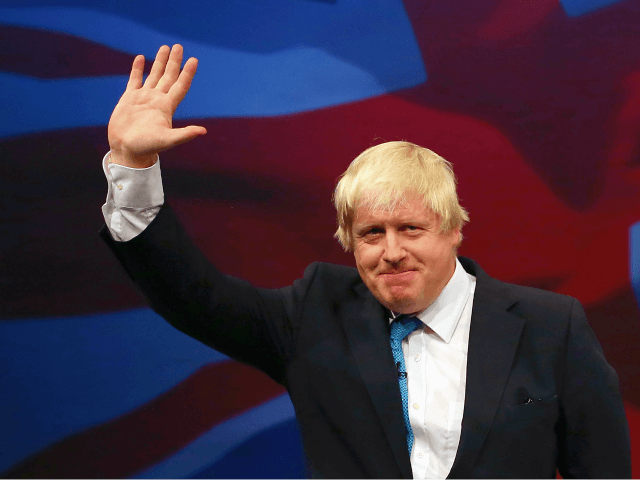Former UK Foreign Secretary Boris Johnson just gave the best and most important speech of his life: the one that might, with luck, save Brexit.
It definitely wasn’t his funniest speech or the most fluent. Boris actually referred to notes which, as an experienced debater and master of the off-the-cuff quip, he almost never does. But then he has never made a speech quite like this important before. At stake, as he addressed the Commons, were not just a lifetime’s personal ambitions but also the future of Britain and the credibility of democracy itself.
Just to recap, in June 2016, the people of Britain were offered a choice: whether to Remain in the European Union or whether to Leave.
By a significant majority, they voted Leave.
But now — despite official assurances given beforehand that the referendum vote would be honoured — the political class and its fellow travellers in big business, in the City, in the law firms, in academe, in the media and, of course, in the rampantly pro-Remain civil service have conspired to frustrate that expression of the democratic will.
So this was the purpose of Boris’s speech: to try to hold Prime Minister Theresa May true to the promise she made to the British people that “Brexit means Brexit”.
He did so by comparing, unfavourably, the commitments May made to Brexit in a speech in January this year at Lancaster House with the watered-down, surrender-monkey sell-out which she tried imposing on her cabinet in Chequers last weekend.
Here is one of the key moments:
So, Mr Speaker, after 18 months of stealthy retreat
we have come from the bright certainties of Lancaster House to the Chequers agreement
Put them side by side
Lancaster House said laws will be once again “made in Westminster”
Chequers says there will be “ongoing harmonisation” with a common EU rulebook
Lancaster House said it would be wrong to “comply with EU rules and regulations without having a vote on what those rules and regulations are”
Chequers now makes us rule takers
Lancaster House said we don’t want anything that leaves us “half-in, half-out” and that “we do not seek to hold on to bits of membership as we leave”
Chequers says that we will remain in lockstep on goods and agrifoods and much more besides
with disputes ultimately adjudicated by the ECJ
Far from making laws in Westminster, there are large sectors in which ministers will have no power to initiate, innovate or even deviate
After decades in which UK ministers have gone to Brussels and expostulated against costly EU regulation
we are now claiming that we must accept every jot and tittle for our economic health – and with no say of our own
and no way of protecting our businesses and entrepreneurs from rules that may be not in their interests.
Armchair experts often say that Boris Johnson is unsuitable to be Prime Minister. They doubt whether his heart was ever in Brexit. They say he is insufficiently serious.
I say: this is the kind of thing people used to say about Donald Trump – before he went on to become one of the greatest and most effective ever U.S. Presidents.
Johnson is just one of several strong potential candidates to replace Theresa May.
What differentiates him from most of the others is that he has stopped playing politics, got off the fence, and committed himself.
The Brexit that Boris Johnson very explicitly wants is also what the vast majority of the British people want.
Right now, Boris Johnson is Britain’s best hope of a bright, independent, free-trading future outside the clutches of the European Union.
And I’m not the only one who thinks so…

COMMENTS
Please let us know if you're having issues with commenting.